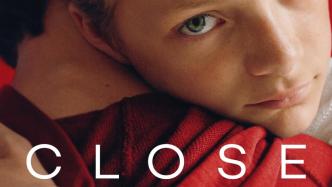
October 3, US local time, is the deadline for submissions for the next Academy Awards for Best International Picture. Last year, a total of 93 countries and regions signed up, and the Japanese film "Drive My Car" came out on top. How many films have been successfully submitted for selection this year, and the specific data will have to wait for the official statistics released by the Academy of Motion Picture Arts and Sciences, the sponsor of the Oscars. As of the publication, according to the media, about 83 films have been selected for selection.
Cannes Film Festival is still the "Chong Austrian" Katakura
Entries for this year's Oscars for Best International Picture must have their first screening in their respective countries or regions between January 1, 2022 and November 30, 2022. As of the time of publication, the selected films from mainland China have not yet been announced, and "When the Wind Rises" and "Damn Ashura" represent Hong Kong, China and Taiwan, China, respectively. Among them, "When the Wind Rises" was screened for the first time at the Hong Kong International Film Festival in August, and "Damn Ashura" was officially released in local theaters in March.

"When the Wind Rises"
Among the 83 films that have been confirmed for selection this year, African countries Zambia and Uganda are the first to sign up, while the respective local film selection committees of Egypt and Nigeria have reached a consensus that no film is suitable for the Oscar for Best International Film this year. Competition, so simply do not send.
Roughly reviewing this year's selection of films, it is not difficult to find that the most obvious feature is that there are no hit works like "Parasite", "Alcohol Project" and "Drive My Car" in previous years, which is also this year's Oscar Award. Added a point to watch.
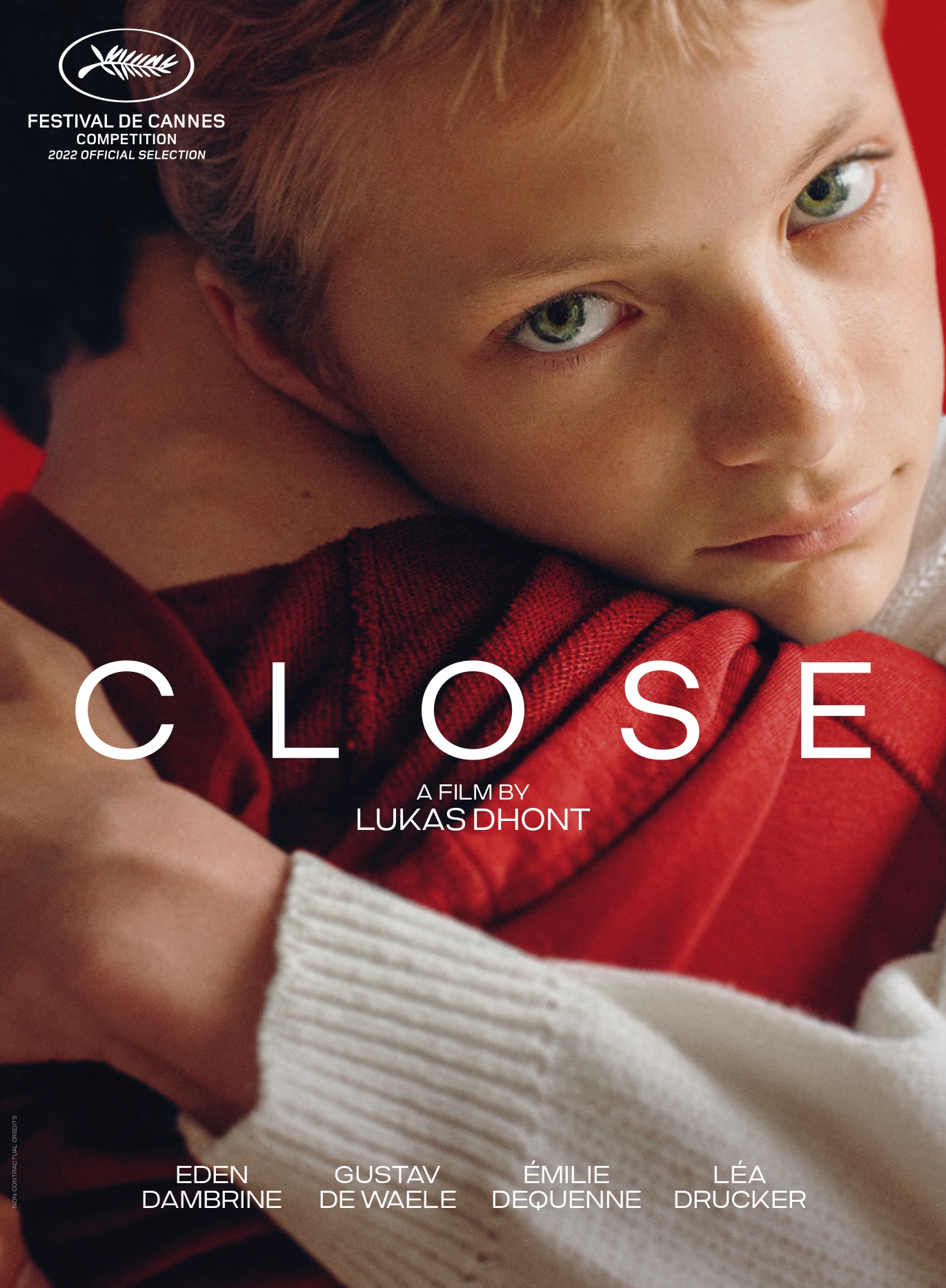
"close"
At present, the Cannes Film Festival is still the largest output source of "Olympic films". Belgium's "Close" (Close) is this year's Cannes Grand Jury Prize winner, directed by 31-year-old Lukas Dhont. His first work "Girl" also won the Caméra d'Or (Best Debut Award) in Cannes in 2018, and then represented Belgium "Chongo". "Intimate" presents a sincere but eroded relationship between two little boys in the world of adults. It is simple and moving, and A24 has won the North American distribution rights for the film.

"Resolve to Break Up"
There is also "Resolve to Break Up" directed by Park Chan-wook and starring Tang Wei and Park Hae-il, which was selected by South Korea. It also has the blessing of the Best Director Award at this year's Cannes Film Festival. The US distribution rights were won by MUBI. And the Arabic-language film Boy From Heaven, which won Best Screenplay at Cannes, represented Sweden—yes, as long as it’s not in English, even if it’s not in the country’s main language The country competes. By the same token, the Persian dialogue is in Holy Spider, which represents Denmark, winner of this year's Cannes Best Actress award. In addition, Singapore’s nominated film this year is director He Shuming’s feature film debut, “Hua Lu Aju Ma”. The film tells the story of a Singaporean nanny who embarks on a trip to Seoul because of her love for Korean dramas. Much of the film’s dialogue is in Korean. , will also have its world premiere at the upcoming Busan Film Festival.
This year's "Auspicious Films" who have been to Cannes also represented Italy's "Nostalgia" (Nostalgia) and Poland's "Donkey Crying" (EO), which was distributed by Sideshow in North America and won last year's best international film "Driving My Car" is being distributed in North America by this new label in the independent film field. In addition, participated in "The Seventh Five-Year Plan", "Corsage", "Mediterranean Fever", "Domingo and the midst of the midst" in the Un Certain Regard section of the Cannes Film Festival ) will also represent Japan, Austria, Palestine, and Costa Rica.
Fumau is out, Venice's award-winning film "Saint Omer" represents France's "Austria"
The Cannes Film Festival was held in the seaside city of Cannes, France. However, the films selected by France this year have nothing to do with the Cannes Film Festival, but "Saint Omer", which won the Special Jury Prize of the Venice Film Festival in Italy. Saint Omer).
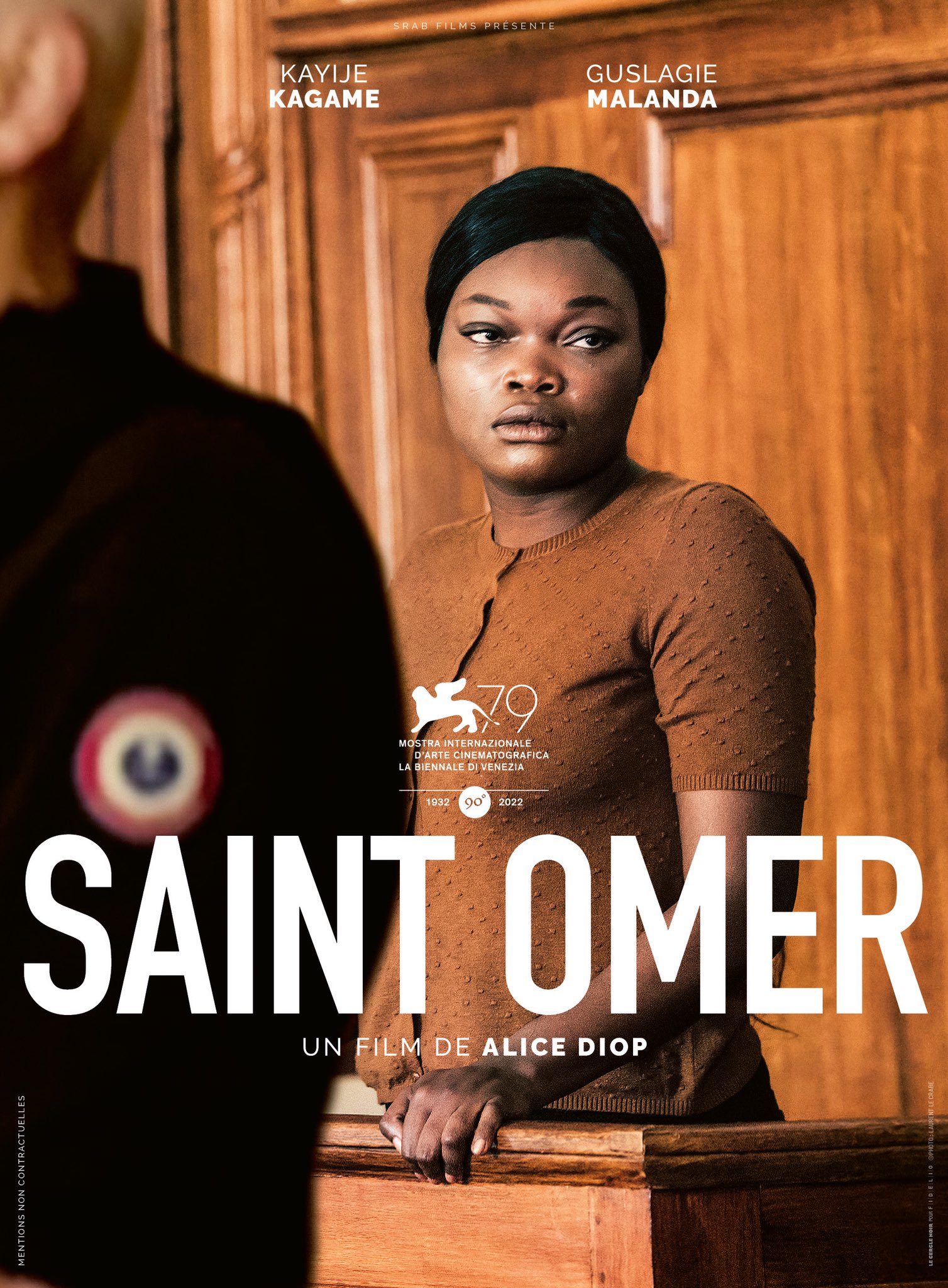
"Saint Omer"
As Europe's No. 1 movie power, what movie France will choose to participate in the Oscars has always been the focus of the industry. However, the last time France won the Oscar for Best Foreign Language Film was "Indochina" in 1993. In the following 30 years, most of the time they couldn't even enter the short list, which really made the French film industry a little ashamed.
Last year, France chose Titanium, which won the Palme d'Or at Cannes, instead of Venice's Golden Lion winner, It's Happening. As a result, "Titanium" failed to even enter the first round of the short list, causing great controversy within the French folk and the film industry. In the eyes of critics, "It's Happening", which tells about the subject of abortion, very echoes the current social concerns in the United States. If it had been selected at the beginning, it was very hopeful that it would have entered the final round, but the result was that the "Golden Palm" won. "Golden Lion".
Some people have also questioned Thierry Fumau, who has been the head of the Cannes Film Festival for a long time, and has also held the election committee of the French "Olympic Film" for many years. It is difficult to tell whether he is selfish or not because of his interests. Moreover, it is said that it was his pivotal influence that led France to have the unspoken rule that if the winner of the Cannes Palme d'Or that year was a local work, the film would automatically represent France's "going to the Olympics".
In this regard, Fu Mao himself retorted strongly in an interview with the media: "This is all an afterthought. We choose "Titanium", a genre film directed by a female director who won the Palme d'Or, to represent France. Very proud. Of course "It's Happening" is also very well done, but if it was chosen in the first place, no one can know how it will turn out. It can only be said that in this competition, we in France have not been in the past 30 years. Very lucky."
Whether it's luck or not, it's time to do it without reform. In August, the French government appointed Dominique Boutonnat, director of the French Film Agency (CNC), to be re-elected and will continue to serve for three years. And he lived up to his high expectations, and immediately passed the reform charter of the "Chong Olympic Film" selection committee. The original long-term commissioner, Fumaux, plus the chairman of the Caesar Awards, Veronique Cayla, and the chairman of the French Film Union (Unifrance), Serge Toubiana, were all "swept out".
After the restructuring, the members of the election committee of the French "Chongo Film" are no longer fixed. Seven people are directly selected by the Ministry of Culture every year. The basic composition is two producers, two film practitioners and two international film sales agents, plus an authority. an expert. Serge Toubiana, president of the French Film Federation, and Dominique Butoner, director of the French Film Bureau, were in charge of the entire selection process.
This year's selection will be judged by directors Jacques Audiard and Michel Gondry, producers Phillippe Rousselet and Didar Domehri ), sales agents Henameh Panahi and Grégoire Melin, plus film distributor Ariane Toscal du Plantier.
In the end, the seven films were selected from the 33 French films that were registered. Alice Diop's "Saint Omer", Mia Hansen-Love's "One Fine Morning", Eric Diop Gravel's "Full Time," Alice Winogour's "Paris Memories," and Liz Aacocca and Roman Gretel's "Bad Boys" "(The Worst Ones) these five candidate works. Among them, the works of female directors ranked fourth, and they are all new directors of the younger generation. "Morning Light" is also the winner of the Cannes Director's Fortnight.
In the end, it seems to echo Fumau's exit, and "Saint Omer" in Venice stood out and got the opportunity to represent France. The North American distribution rights of the film are in the hands of Super Ltd, a newly established subsidiary of Neon Pictures. Whether the new company has a chance to reverse the bad luck of the French filmmakers for three decades, we will wait and see.
Spain and Germany's "Olympic Films" have their own highlights
In addition to France, the situation in Spain is also worthy of attention. Unlike France's film selection committee, which likes to make a small circle of elites, Spain's "Olympic film" was decided by secret ballot among 1,500 members of the country's Film Arts and Sciences Society. Positively speaking, it is more able to reflect public opinion, but from another perspective, it may also easily become populist. For example, last year, Almodóvar's "Parallel Mother" was not selected, and was replaced by "The Good Boss", which has a stronger commercial meaning. As a result, the film was shortlisted, but failed to get the nomination.
This year, the outside world was more optimistic about the black comedy "Official Competition" (Official Competition), which used the film and literary film field. As a result, the 1,500 people selected the Catalan director Carla Simon's "Alcalás" ( Alcarràs). Of course, the film is the winner of this year's Berlin Golden Bear, and it is also full of quality.

"Alcaras"
Carla Simon, born in 1986, is the most dazzling rising star in Spanish cinema. She was born in Cobain. In 2017, she won the Best Newcomer Award at the Berlin Film Festival with her debut film "Summer of 1993". Subsequently, the film was nominated for eight Goya Awards in Spain, and finally won the Best Newcomer Director, Best Newcomer Award Male and female supporting roles and other three awards. And "Summer of 1993" also represented Spain in the Oscar competition, but was eliminated in the first round. "Alcalás", which speaks Catalan and has a rural theme, is her second work, and it earned 2.2 million euros at the box office in Spain, which is quite impressive. With the blessing of the Berlin Golden Bear Award, It is understandable to be able to represent Spain's "Austria".

"All Quiet on the Western Front"
In addition, Germany selected a new version of "All Quiet on the Western Front" this year, which can be said to be meaningful. The film was adapted from Remark's novel of the same name. The original book was published in 1929. It was soon picked up by the Hollywood company Universal Pictures and remade into an English-language film of the same name. At the end of 1930, the film premiered grandly in Berlin, Germany, and it was a success, but the show the next night was strongly attacked by the Nazis under Hitler's leadership, and Goebbels, who would later become Minister of Propaganda, personally went into battle , led a group of thugs to riot in the theater, released stink bombs, and shouted anti-Semitic slogans. Under pressure, the German government at the time announced a week later that the film would be banned, and the film would be burned. It was not until 1952 that "All Quiet on the Western Front" was able to meet German audiences again. After more than 90 years, a German talent made a version of "All Quiet on the Western Front" for the first time - but the investor was Netflix from the United States, and the world premiere was also selected at the Toronto Film Festival in Canada.
Russia does not send films, Oscar is relieved?
The Russian Film Board suddenly announced on September 26 that it would not send films for the Oscars, but Pavel Chukhlai, chairman of the committee responsible for selecting films, publicly expressed his opposition to the film board’s approach.
Originally as early as September 23, in an interview with the TASS news agency, Chukhlei also categorically stated that the committee has received as many as 122 Russian film registrations this year, and the specific deliberation and voting processes have also been launched. It will decide which film to send to represent the motherland. Unexpectedly, only three days later, the Russian Film Bureau made a "face-slap" statement, which also made the famous Russian director angry. Immediately announced his resignation as chairman of the committee in protest.
Of course, from the Oscars point of view, the voluntary withdrawal of Russian films may have done them a big favor. In the past few months, although some Russian films like "Tchaikovsky's Wife" have been able to emerge at the Cannes Film Festival, most of the new Russian films have been boycotted by Western countries, and it is difficult to obtain them. Opportunities for public screenings and participation in cultural events. If Russia does have a film nominated for the Oscars this year, it will be a big problem for the Academy of Motion Picture Arts and Sciences to express its position. Whether it is to declare that art belongs to art and politics belongs to politics like the Cannes Film Festival; Therefore, with such a change, it is estimated that many people in Oscar are greatly relieved.
Historically, Russia has signed up for the Oscar for Best Foreign Language Film since 1992, when it selected Nikita Mikhalkov's "Spirit of Mongolia", who won the Venice Golden Lion Award that year, and the result was also logically awarded. When it was nominated for the best foreign language film and finally lost to the French film "Indochina", many people felt sorry for it. In 1993, Russia did not sign up for the Oscars again, but in 1994, when he signed up for the second time, he won the golden statue with "Burning Sun", directed by Nikita Mikhalkov.
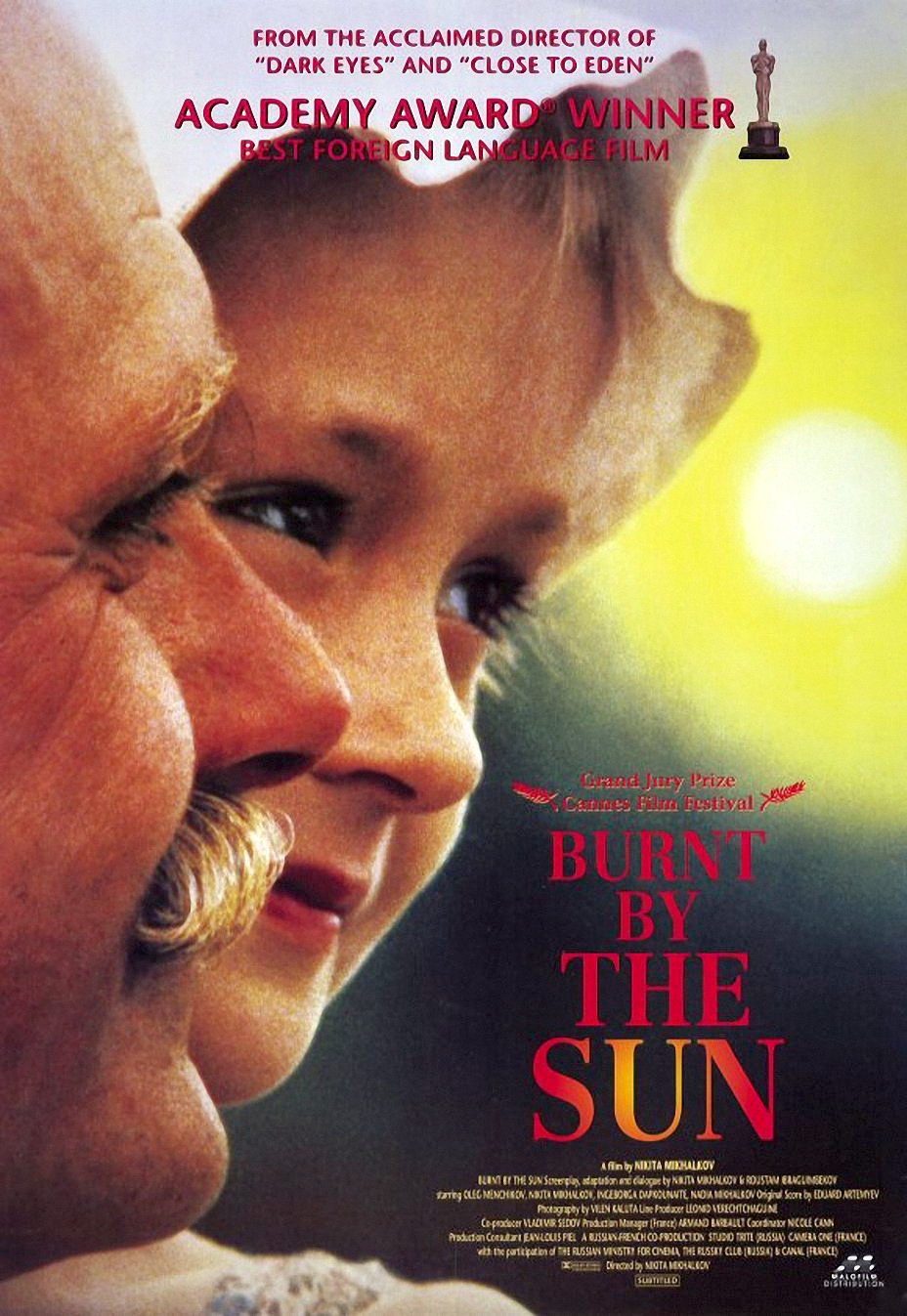
"Scorching Sun"
In the 27 years since then, Russia has registered regularly every year, although there have been cases where Nikita Mikhalkov's "The Barber of Siberia" in 1998 was removed because the copy was not delivered to Los Angeles on time. , but overall it is quite smooth, and works that are on the short list or shortlisted for nominations also appear frequently. For example, director Chukhlai, who had just resigned from the film selection committee, was nominated for "The Thief" in 1997.
Today, the practice that has lasted for nearly 30 years has finally been broken, and Nikita Mikhalkov, who has won the Oscar for Best Foreign Language Film, said in an interview with TASS as the chairman of the Russian Film Union not long ago. , "In my opinion, it is completely meaningless to choose a film to represent Russia in a competition in a country that no longer recognizes Russia's existence." The 76-year-old Russian meritorious director even suggested that once in the Countries within the Soviet Union can create their own film awards like the Oscars to compete with them.
Most of the submitted films are award-winning or shortlisted works of the film festival
As for the selected films from other countries, most of them are works that have won or been well received at the film festival.
Argentina and Mexico, which have been favored by the Oscar judges in recent years, are all selected for the Venice Film Festival this year. Santiago Mitre's "Argentina, 1985" and Alejandro Gonzalez I Naritu's "Poet" (BARDO). And "Utama" (Utama) representing Bolivia, "Girl Picture" (Girl Picture) representing Finland and "Klondike" (Klondike) representing Ukraine respectively won the world film at this year's Sundance Film Festival in the United States The Grand Prix, the Audience Choice Award and the Best Director Award are also worthy of attention.
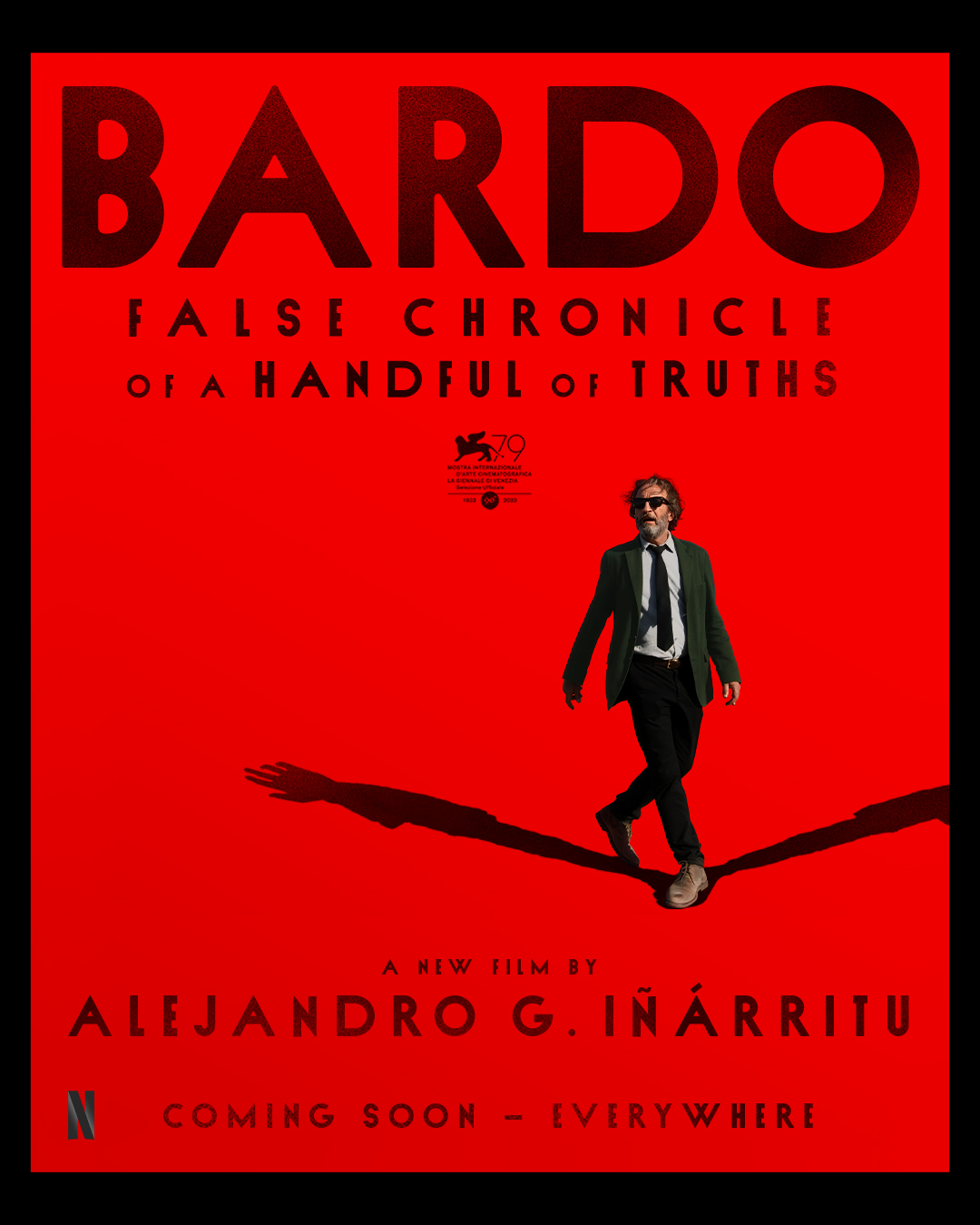
"poet"
Bulgaria originally sent Zornitsa Sophia's "Mother", which tells the story of Elena, a stage director who unfortunately stopped menstruating at the age of 32 and lost her chance to conceive, and instead devotes all her efforts to children Theatrical production, the true story of giving everything to care for Bulgarian and African orphans. As a result, it was rejected because more than 50% of the lines in the film were in English, which did not meet the entry requirements for Best International Film. According to director Sophia, she was so shocked by this that she even measured it with a stopwatch, and the result was that the non-English dialogue (including Bulgarian, Swahili and African Masai) was better than the English dialogue. It has grown for at least 30 seconds, but this is the end, and she can only do anything in vain. In the end, Bulgaria sent Martin Makariyev's "In the Heart of the Machine", which also won last year's Bulgarian National Film Awards for Best Picture and Best Screenplay.

"Heart of the Machine"
On December 21, the Academy of Motion Picture Arts and Sciences will announce a shortlist of 15 shortlisted films. The five nominated films will be announced on January 24, 2023, along with other Oscar nominees.


